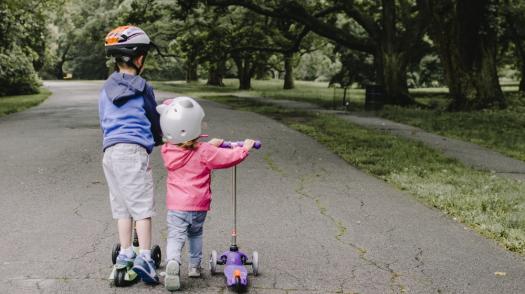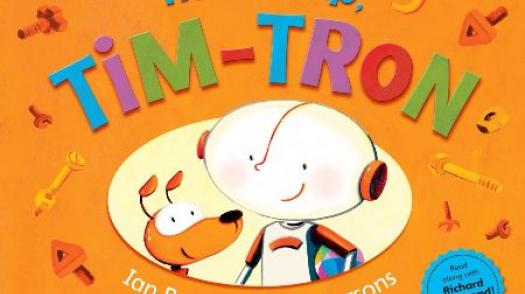We know children with acquired brain injury can have difficulties with their ‘cognitive functions’. At its simplest, these are the processes that go in our heads all the time.1
The memory, the way we think about things in a sequence, and the way we plan things may all be affected by an acquired brain injury. These are all skills we use in organising ourselves.
And difficulties with these skills (sometimes called ‘impairments’ by professionals) can have an enormous impact on a child’s everyday life.
Children may forget the order of the day, or where they should be. This can make school life particularly difficult.2
We use organisational skills all the time. It’s not just about planning our day – it’s also about the way we organise our thoughts and put them in an order. It’s about the way we talk to people and organise our conversations, and the way we learn new things.
These organisation skills become more important as children get older and they come to depend on them more.3 But there are ways in which the people around a child can offer some support.
A broad point to make is that the more routine there is around the home, the better. Most of us have our own ways of doing things at home, but children with an acquired brain injury really need this structure and routine.4 This may not always be easy when a family is trying to meet the needs of all of its members!
Some children with acquired brain injury struggle with switching between different things.5 But by establishing set routines, such as keeping regular bed times and mealtimes, a child has less organisational work to do.
They can focus on one thing, and the hope is that activities become ‘automatic’ and simpler to carry out. Set routines for getting washed and dressed are good, everyday examples.6
Think how often you hear the phrase “It’s like riding a bike”. How to ride a bike is something our brain holds on to and becomes almost automatic after a certain amount of practice.
After an acquired brain injury, some children are able to learn tasks by always doing them the same way and maintaining a routine.7, 8 It’s also thought that these routines make children more at ease. Through them, children are given familiarity, and fewer opportunities to get things wrong (which can have an effect on their self-esteem).6
Other ways of supporting your child in everyday activities9
Help them with tasks by setting out the steps. For a task such as getting ready for school, it can be helpful to write a list, breaking down each individual step. Limit the number of steps and tell your child how many steps there are. It can be useful to cross them off, like a checklist.
If you’re asking them to do something, ask if they can repeat it back to you to make sure they understand. Give cues such as “what comes first?”
Encourage your child to talk through what they’re doing and the steps they are taking. Go back over anything that’s been successful. It’s also useful to keep a log of the successes that provides both encouragement and a reminder about how a task was done well.
Offer reminders about the next step they need to take in a task. And try not to rush them through a task – they may forget things and become flustered.
A daily timetable or planner can be useful in reminding children of the structure of their day. For older children, separate timetables for home and school can be useful. It can be useful to go through these timetables at the start of each day.
Try to keep areas like a desk as tidy and ordered as possible.
Managing time10
Organising our time is something some of us pick up more easily than others.
For children with an acquired brain injury, getting a structure to their day may be something they struggle with.11, 12
For some children, they may have school and ongoing rehabilitation to work into their lives. But it’s an area in which a parent can be of great support.
Talking the day over can be very useful. You can talk about the things your child does each day.4 Include things like breakfast, cleaning teeth, getting dressed, and packing lunch for school.
But don’t forget time to relax – tiredness may be an issue. It’s also important to include the enjoyable things. Time for friends, getting out of the house, or exercise (if possible) may all be useful.13
Perhaps a diary, planner or to-do list might also help.4 Try to keep regular hours for homework and study and stick to these timetables.6
Should you need to be more flexible about these timetables, try to talk over why it needs changing. “What do we need to change?” “Do you have enough time to do your homework?”. Try to reach agreement between you about what has worked and what hasn’t.
If your child is at school, and doing homework, try to sit down with them and prioritise the work that needs to be done. Working out where to start can be a problem for children with acquired brain injury.
But if an adult helps by breaking a task down into easily digestible chunks, a child can concentrate on one thing at a time.10 It’s also important to find time to spend with friends or family.
Fatigue is an issue, and children shouldn’t push themselves too hard, or they may feel worse for it.14 See our dedicated section on fatigue.
Talk about the way you organise yourself
Children often think organisation is something that adults are just able to do. By seeing examples, children are better able to see the processes. For instance, explain the organisation you did to organise a family trip. Or make a list of what you need to buy at the supermarket.10


